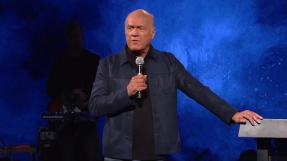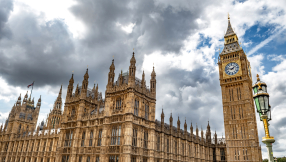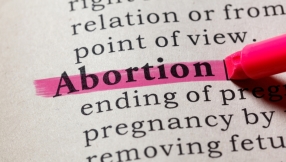For the first time in 750 years, the face of St Thomas Aquinas has been reconstructed using forensic science, offering a glimpse of the man whose teachings have shaped Catholic thought for centuries. Alongside this discovery, new research suggests that his death was not due to illness or poisoning, as previously speculated, but was the result of a traumatic brain injury.
Aquinas' influence on Catholic doctrine is immeasurable. His seminal work, Summa Theologica, remains one of the most important texts in Christian theology. He argued that faith and reason were not in conflict but complementary, and he provided five logical "proofs" for the existence of God. His ideas extended beyond theology, transforming secular philosophy by linking morality to human nature and shaping modern concepts of liberty and government authority.
The Cambridge Dictionary of Philosophy describes Aquinas as "the most influential thinker of the medieval period", and his teachings still underpin Christian faith today.
A team of researchers, led by forensic expert Cicero Moraes, used the partial remains of Aquinas' skull to digitally reconstruct his face.
"We initially reconstructed the skull from photographic and structural data," Moraes explained, according to The Daily Mail. "The skull did not have teeth or a jaw, so we had to project these structures based on measurements taken from CT scans of the skulls of living individuals."
To ensure accuracy, the team used a method called anatomical deformation, in which the skull and facial structures of a living donor were adjusted to match Aquinas' dimensions.
"In the end, we combined all this data to create the basic bust and also generate a coloured version, based on the iconography of the saint," Moraes said. The final result, he noted, was a "humble" face, reflecting the character of the great theologian.
For centuries, historians have debated the cause of Aquinas' death. Some attributed it to illness, others to poisoning, and some even suggested assassination. However, a new study published in World Neurosurgery by doctors Gabriel LeBeau, Abdul-Rahman Alkiswani, Paul Camarata, and theologian Daniel Mauro points to a chronic subdural haematoma - a condition in which blood collects between the brain and the skull following head trauma.
Historical records describe how Aquinas, en route to the Second Council of Lyon in 1274, struck his head on a fallen tree while travelling along the Via Latina. Though he survived the initial impact and continued his journey, his condition deteriorated. He first stopped to recover at Maenza, 45 miles southeast of Rome, before reaching the Abbey of Fossanova, where he ultimately died weeks later.
The study explains, "Most chronic subdural hematomas (cSDH) are preceded by some form of minor to moderate head injury. A critical reading of the accounts of the last weeks of his life makes a strong case for cSDH - with the classic clinical history of a relatively minor head trauma, a period of lucidity, and then a gradual decline as the haematoma expands over several weeks."
The researchers argue that Aquinas' "violent collision" with the tree on the Via Latina marked the beginning of his demise.
They explain that while some historical accounts suggest illness, poisoning, or even assassination, these theories do not align with contemporary records.
Instead, the evidence points to a chronic subdural haematoma, a condition typically caused by a moderate head injury, which would account for his initial period of lucidity followed by a gradual decline in health.
Thomas Aquinas, his life, and his eventual death remain of profound importance to students of Western history, theology, and philosophy, and, of course, to Christians around the world.













